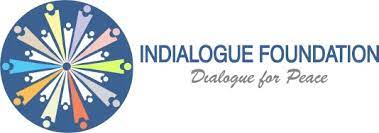ABOUT US
Indialogue Foundation, its objectives and activities
Indialogue Foundation
Indialogue Foundation is an action-oriented international dialogue and peace foundation, was founded in 2005, through imagination and fortune of a group of Turkish and Indian people. Foundation is inspired by sensible and spiritual thoughts of the eminent scholars and spiritual leaders of the world. Its objectives are to champion proactive studies, to pioneer international, intercultural and interfaith dialogue initiatives and to promote universal values as love, respect, harmony, co-existence, cooperation, care and peace. Indialogue contributes to information exchange and networking on current issues of dialogue and peace building through its analyses and reports as well as meetings and conferences. Indialogue Foundation envisions eradicating polarization, animosity and prejudice among communities and groups through its academic, social, interfaith and cultural events, programs and projects.
Indialogue recalls taking other appropriate measures to strengthen universal peace, and to achieve the objectives in promoting and encouraging respect for religions, human rights and for fundamental freedoms for all without discrimination or distinction as to religion, culture, race, sex, language etc.
Organization’s name derived from combination of two words “India” and ”Dialogue”, which literally means being “in dialogue in India”. It also can be stated as “In” and “Dialogue” which will refer to be “in dialogue with people”. The mission statement of the organization is “Dialogue for Peace”. Through both meanings and mission statement, Indialogue strives to be a dynamic and prominent think tank institution in India that will be an address for causes of peace building, reconciliation and inclusive & responsible development.
Indialogue logo represented by Chakra a wheel of a cart. Chakra in its originality is AshokaChakra which is a symbolism of peace in Hindu and Buddhist mythologies, which is also represented today at central part of Indian National Flag. According to Buddha each 24 arrows of AshokaChakra symbolises human virtues as Love, Peacefulness, Faithfulness, Selflessness, Sacrifice, Truthfulness, Justice, Mercy, Goodness, etc. In Indialogue logo there are ten small and ten big arrows, the big arrows are coloured with different colours to represent diversity of human kind and connected in central part for common good.Indialogue Foundation in its eight years tenure in India with four offices in New Delhi, Hyderabad, Kolkata and Mumbai has organized number of notable interfaith forums, cultural events, academic conferences, contests, study trips, etc. Indialogue developed good relationships with several civil society organizations, university academics, intellectuals, community leaders and general public. And these associations resulted in collaborative efforts in organizing socially beneficial endeavours.
One of the striking activities of Indialogue are annual Gandhi Jayanti Seminar focusing each year on different aspects of Gandhian thought, during seminar the papers are invited to focus on Gandhi’s perspective and other treasured philosophical trends. Current year, the theme of the seminar was “Embracing the Other”. Some other noteworthy events are Turkish Cultural Festivals, Contests, National Seminars focusing for Peace, Study trips and annual Interfaith Dialogue on Common Values. Interfaith Dialogue initiative will be discussed in detail in coming chapter.
Indialogue Foundation is especially inspired by teachings and exemplary life of the M. FethullahGulen. Who is an eminent Islamic scholar and peace activist from Turkey, whose teachings are based on dialogue and education, expanded worldwide and he has been subject to many academic studies. His more than 60 books have been translated to many languages and his philosophy is well accepted in East and West. He has denounced and condemned terror activities carried during 9 September and as well current atrocities committed by ISIS terror outfit. In 1990s, he advocated the necessity of interfaith dialog; he personally met with many religious and community leaders, including Pope John Paul II, the Greek Orthodox Patriarch Bartholomeos, and Israeli Sephardic Head Rabbi EliyahuBakshi-Doron.
